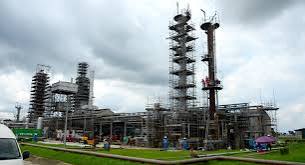/ Oil & gas
Views: 690
Port Harcourt Refinery: Questions surround NNPCL's Operational claims

The operational status of the recently rehabilitated Port Harcourt Refining Company (PHRC) has come under scrutiny amid allegations that the refinery is not yet fully functional.
Reports suggest that petroleum products loaded from the facility earlier this week were not freshly refined but rather drawn from stock that had been stored for over three years.
Timothy Mgbere, Secretary of the Alesa Community Stakeholders, raised these concerns in a chat with newsmen on Thursday. He alleged that, despite the Nigerian National Petroleum Company Limited's (NNPCL) claim that the facility is operational, only six trucks of petroleum products were loaded on Tuesday, far below the promised 200 trucks daily.
The Port Harcourt refinery, which has a refining capacity of 60,000 barrels per day (bpd), resumed operations on Tuesday following years of inactivity. The NNPCL celebrated the rehabilitation of the refinery, asserting that it was operating at 70% capacity and producing significant volumes of diesel, fuel oil, and other products.
According to NNPCL, the refinery’s daily output includes 1.5 million liters of diesel, 2.1 million liters of pour fuel oil, 1.4 million liters of straight-run gasoline (used to blend Premium Motor Spirit, or petrol), 900,000 liters of kerosene.
However, Mgbere dismissed these claims, describing the refinery’s unveiling as more of a publicity stunt than a genuine operational milestone.
"It is mere show", says a community leader ."The Port Harcourt refinery, particularly the old complex, is operating at a skeletal level", Mgbere stated. "Only a few units are running, and the majority of the facility remains non-functional".
He further alleged that the products loaded on Tuesday came from old stock stored in the facility’s tanks for over three years, not from fresh refining processes. "What they did was release some of that stock to load six trucks and televise it as though the refinery had resumed full operations. This is misleading", he said.
Mgbere also refuted NNPCL’s claims of automated operations, citing inefficiencies. "On Wednesday, they loaded only four trucks the entire day. An automated system should not take over six hours to load a single truck. This level of inefficiency does not align with their claim of 70% operational capacity", he said.
Industry experts have also voiced concerns about the accuracy of NNPCL’s claims. They challenged the company to sell products directly to oil marketers as proof of the refinery’s functionality. It was reported that despite repeated inquiries, NNPCL spokesperson, Femi Soneye has not commented on the matter.
Mgbere urged NNPCL to provide accurate information to Nigerians, emphasizing the refinery’s importance to the Alesa Community. “The Port Harcourt refinery is a cornerstone of our local economy. It’s disheartening to see such a vital facility being used for what appears to be mere theatrics,” he said.
The controversy highlights ongoing challenges in Nigeria’s oil sector, with stakeholders demanding transparency and tangible results from refinery rehabilitation efforts. As skepticism mounts, Nigerians await concrete evidence that the Port Harcourt refinery is indeed capable of delivering on its promises.